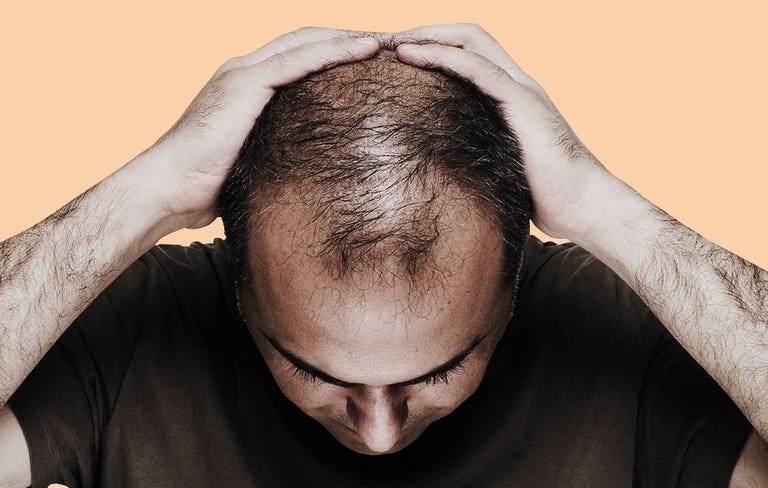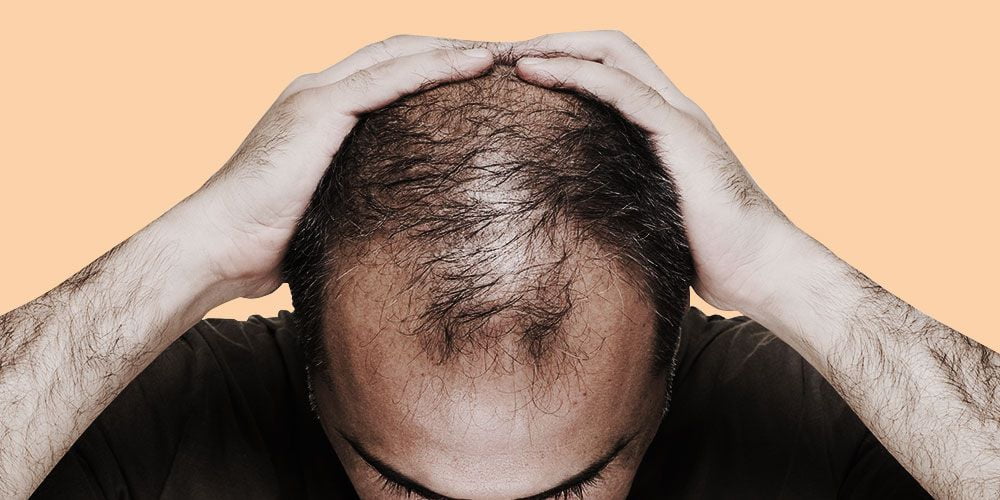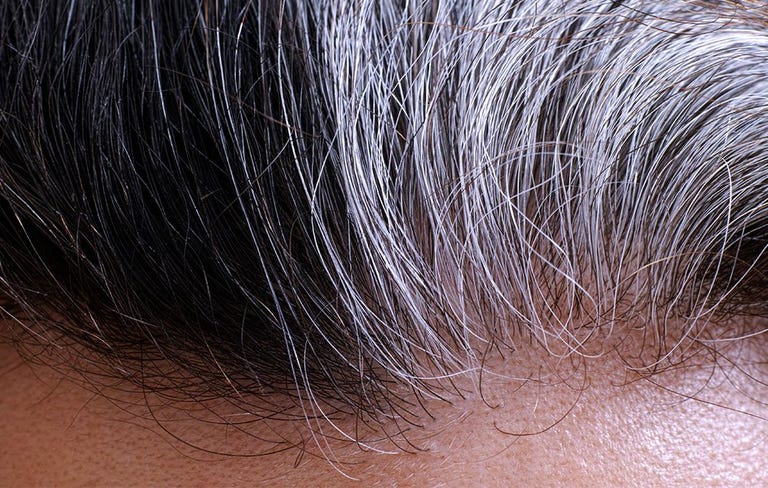
To a degree, hair loss is totally normal. In fact, most men typically lose between 50 and 100 hairs per day, says Dr. Robert Glatter, MD, an attending emergency physician at Lenox Hill Hospital who has frequently consulted with men about hair loss.
By far the most common cause of hair loss is male pattern baldness, which is caused by increased sensitivity to the hormone dihydrotestosterone (DHT). While “nearly 50% of men will experience some degree of hair loss by the time they turn 50, hair loss can also begin earlier in life,” says Glatter, particularly if you have a genetic predisposition to early hair loss.
But if you’re younger than 50 and you’re constantly seeing strands of hair on your pillow, in the shower, or on your favorite sweater, you might want to take note, particularly if your hairline isn’t actually receding (the most common sign of male pattern baldness). It could mean you’re losing hair at an abnormally fast rate. You’ll need to speak to a physician to figure out what’s stressing out your head, but here are 6 surprising reasons why your hair might be falling out.



